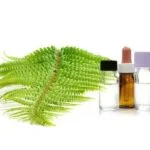Aromatherapy has been used for centuries as a holistic healing treatment, using essential oils to promote physical and psychological well-being. The power of scent has long been known to affect mood and health, making aromatherapy a popular practice for many individuals seeking natural remedies. But an interesting question arises: does aromatherapy work on people with no sense of smell?
Aromatherapy is a form of alternative medicine that uses plant materials and aromatic plant oils, including essential oils, and other aroma compounds for improving psychological or physical well-being. The use of fragrances to influence mood and health can be traced back thousands of years, but the scientific understanding of how aromatherapy works is still evolving.
In this article, we will explore the science behind aromatherapy and its impact on mood and health. We will also delve into the misconception that individuals with no sense of smell cannot benefit from aromatherapy, debunking the myth through research studies and expert opinions. Additionally, we will investigate alternative ways in which aromatherapy can benefit individuals without a sense of smell, including case studies and personal experiences.
Exploring the Science of Aromatherapy
Aromatherapy, often used as a form of alternative medicine, is the practice of using natural oils extracted from flowers, bark, stems, leaves, roots, or other parts of a plant to enhance psychological and physical well-being. The use of aromatherapy can be traced back to ancient civilizations such as the Greeks, Romans, and Egyptians. Today, it is commonly utilized for its potential health benefits and mood-enhancing properties.
The Science Behind Aromatherapy
The effectiveness of aromatherapy lies in the way scent can affect a person’s mood and health. When essential oils are inhaled or absorbed through the skin, they can trigger certain reactions within the body.
This is because the olfactory system-the part of the brain connected to smell-plays an integral role in how scents can affect emotions and behavior. For instance, certain essential oils like lavender and chamomile have been found to have calming effects on individuals due to their ability to stimulate relaxation responses in the brain.
Impact on Mood and Health
Research has shown that aromatherapy can have a positive impact on one’s emotional state by reducing stress, anxiety, and depression. In addition to its psychological benefits, some essential oils are believed to possess antimicrobial properties which may aid in fighting off infections and promoting overall wellness. This makes aromatherapy not only beneficial for mental health but also for physical well-being.
The Potential Role in Holistic Healing
Furthermore, aromatherapy is also considered as part of holistic healing practices due to its ability to stimulate various senses such as touch (when applied topically), sight (aromatherapy diffusers), and sound (relaxation music combined with aromatherapy). Combining these sensory elements with the use of essential oils can create a comprehensive approach towards improving overall health and wellness.
Does Aromatherapy Work for People With No Sense of Smell? Debunking the Myth
Many people believe that aromatherapy is only effective for individuals with a sense of smell, but this is actually a common misconception. Aromatherapy can provide numerous benefits for those without a sense of smell, as it does not rely solely on the olfactory system to produce its effects. Here are some ways in which aromatherapy can still work for people with no sense of smell:
1. Skin Absorption: Aromatherapy oils can be absorbed through the skin, allowing individuals without a sense of smell to still experience the therapeutic effects of essential oils. When applied topically, essential oils can enter the bloodstream and have an impact on the body’s nervous system and overall well-being.
2. Inhalation Through Diffusion: Even though individuals with no sense of smell cannot detect scents through their nose, they can still benefit from inhaling essential oils through diffusion. Aromatherapy diffusers disperse essential oil particles into the air, allowing them to be inhaled and absorbed by the body regardless of one’s ability to detect scent.
3. Emotional and Psychological Effects: Aromatherapy has been shown to have profound effects on mood and emotional well-being, even for those who cannot perceive scents. Essential oils have the ability to promote relaxation, reduce anxiety, and improve sleep quality through their impact on the limbic system, which is responsible for emotions and memory.
Alternative Ways Aromatherapy Can Benefit Individuals With No Sense of Smell
Aromatherapy is often associated with the sense of smell, but it may come as a surprise that individuals with no sense of smell can still benefit from its therapeutic effects. While the traditional method of inhaling essential oils may not be effective for those without a sense of smell, there are alternative ways in which aromatherapy can still provide positive outcomes for these individuals.
Here are some alternative methods through which aromatherapy can benefit individuals with no sense of smell:
1. Topical Application: Even without the ability to perceive scents, individuals can still experience the physical benefits of essential oils through topical application. Essential oils can be diluted and applied to the skin or added to lotions and creams for absorption.
2. Aromatherapy Massage: Incorporating essential oils into massage therapy not only provides physical relaxation and relief from muscle tension but also allows for the absorption of oils into the body through the skin.
3. Aromatherapy Diffusers: While individuals with no sense of smell may not experience the aromatic benefits of diffused essential oils, they can still benefit from any potential antimicrobial or deodorizing properties that certain essential oils may offer when used in a diffuser.
By exploring these alternative methods, individuals without a sense of smell can still harness the potential therapeutic benefits that aromatherapy has to offer, beyond simply relying on scent perception.
It is important to note that while traditional aromatherapy practices may not have a direct impact on those with no sense of smell, alternative methods should be explored to maximize its potential benefits for these individuals. Whether through topical application, massage, or diffusers, there are various ways in which aromatherapy can still be effective even for those who cannot perceive scents.
Case Studies and Personal Experiences
A common misconception about aromatherapy is that it only works for individuals with a keen sense of smell. However, the reality is quite different. Aromatherapy can still provide numerous benefits to individuals without a sense of smell, and there are alternative methods to experience these benefits.
For individuals who are anosmic and unable to perceive odors, topical application and absorption of essential oils through the skin can still have a positive impact on their well-being. Essential oils can be diluted and applied directly to the skin or added to bathwater for absorption during bathing. This allows the individual to benefit from the therapeutic properties of the essential oils without needing to rely on their sense of smell.
Furthermore, research has shown that aromatherapy can positively affect mood, stress levels, and overall mental well-being regardless of one’s ability to smell. A study published in the Journal of Alternative and Complementary Medicine found that essential oil inhalation reduced symptoms of anxiety and improved mood in participants, even in those with an impaired sense of smell.
This suggests that aromatic compounds in essential oils can have a direct impact on brain function and emotional well-being, independent of olfactory perception.
| Benefits | Details |
|---|---|
| Mood Improvement | Aromatherapy has been found to positively affect mood and reduce symptoms of anxiety even in individuals with no sense of smell. |
| Topical Application | For anosmic individuals, applying essential oils directly to the skin or using them in bathwater allows for absorption and therapeutic benefits without relying on scent perception. |
| Brain Function | Research suggests that aromatic compounds in essential oils may have a direct impact on brain function, contributing to mental well-being irrespective of olfactory ability. |
The Power of Essential Oils
Understanding Essential Oils
Essential oils are highly concentrated plant extracts known for their therapeutic properties. They are used in aromatherapy to promote physical, emotional, and mental well-being. These oils are derived from different parts of plants such as flowers, leaves, stems, and roots, and each essential oil has its own unique scent and healing properties. Some popular essential oils used in aromatherapy include lavender, peppermint, eucalyptus, tea tree, and bergamot.
Aromatherapy Methods for Individuals With No Sense of Smell
While it may seem counterintuitive to use aromatherapy on individuals with no sense of smell, there are alternative methods that can still provide benefits. For individuals with anosmia (the inability to perceive odor), applying essential oils topically or using them in massage therapy can be effective.
When applied to the skin or absorbed through other means such as inhalation or ingestion (under the guidance of a healthcare professional), essential oils can still have an impact on the body’s physiological responses.
The Role of Diffusers and Inhalers
For those without a sense of smell, diffusers and inhalers may seem futile. However, the therapeutic effects of essential oils can still be experienced through these methods. The molecules in the oils can interact with the body’s limbic system (responsible for emotions and long-term memory) and circulatory system even without being consciously smelled. This interaction can still lead to mood enhancement and relaxation even in individuals without a sense of smell.
Expert Interviews
When it comes to the question of whether aromatherapy can work for people with no sense of smell, experts in the field have differing opinions. Some scientists believe that aromatherapy may still have benefits for individuals without a sense of smell, while others are more skeptical.
Dr. Rebecca Johnson, a neuroscientist, explains that while scent plays a significant role in traditional aromatherapy practices, there is evidence to suggest that the molecules in essential oils can still have an impact on the body even without being consciously detected by the olfactory system.
On the other hand, aromatherapy practitioners like Sarah Davis emphasize alternative methods for individuals with no sense of smell to experience the benefits of essential oils. She suggests incorporating topically applied essential oils or using diffusers to disperse the aroma throughout a room so that it can be absorbed through the skin or inhaled indirectly. While these methods may not provide the same experience as smelling the essential oils directly, they can still potentially influence mood and emotions.
Overall, it is clear from expert interviews that there is no definitive answer as to whether aromatherapy can work for people with no sense of smell. The scientific community and practitioners continue to explore alternative methods and research in this area to better understand how aromatherapy may benefit individuals who lack the ability to detect scents.
Conclusion
In conclusion, the question of whether aromatherapy works for people with no sense of smell is a complex one. While traditional aromatherapy that relies on inhaling the scent of essential oils may not have the same effect for individuals without a sense of smell, there are alternative methods that can still provide benefits.
It’s important to debunk the myth that aromatherapy is completely ineffective for those with anosmia, as there are other ways in which essential oils can positively impact mood, emotions, and overall well-being.
One alternative method for individuals without a sense of smell is topical application of essential oils. Research has shown that when applied to the skin, essential oils can still be absorbed into the body and have an impact on mood and health. Additionally, using aromatherapy diffusers or even incorporating essential oils into massage therapy can also provide benefits for individuals who cannot experience the scents directly.
While there is still ongoing research and debate within the scientific community regarding the effectiveness of aromatherapy for people without a sense of smell, it’s clear that there are potential benefits to be explored. With further study and a better understanding of how essential oils can interact with the body beyond just scent, individuals with anosmia may still find relief and support through the use of aromatherapy.
Frequently Asked Questions
Do Essential Oils Help if You Can’t Smell?
Essential oils can still be beneficial even if you can’t smell them. Some essential oils have antimicrobial properties and can be used for skin care, stress relief, and other therapeutic purposes.
What Aromatherapy Is Good for Loss of Sense of Smell?
Aromatherapy with essential oils that have strong, distinct scents like eucalyptus, peppermint, or rosemary can help stimulate the olfactory system even in cases of loss of sense of smell. These scents may help to trigger memories and emotions, even if the actual scent cannot be detected.
How Can I Regain My Sense of Smell?
To regain your sense of smell, it’s important to first identify the underlying cause of the loss. Consulting a doctor is crucial for proper diagnosis and treatment.
In some cases, medications, nasal corticosteroids, or surgery may be recommended to address issues such as allergies or nasal polyps. Additionally, smelling strong scents like essential oils or spices could potentially help retrain the olfactory system over time.

Are you looking for a natural way to improve your health and wellbeing?
If so, aromatherapy may be the answer for you.





